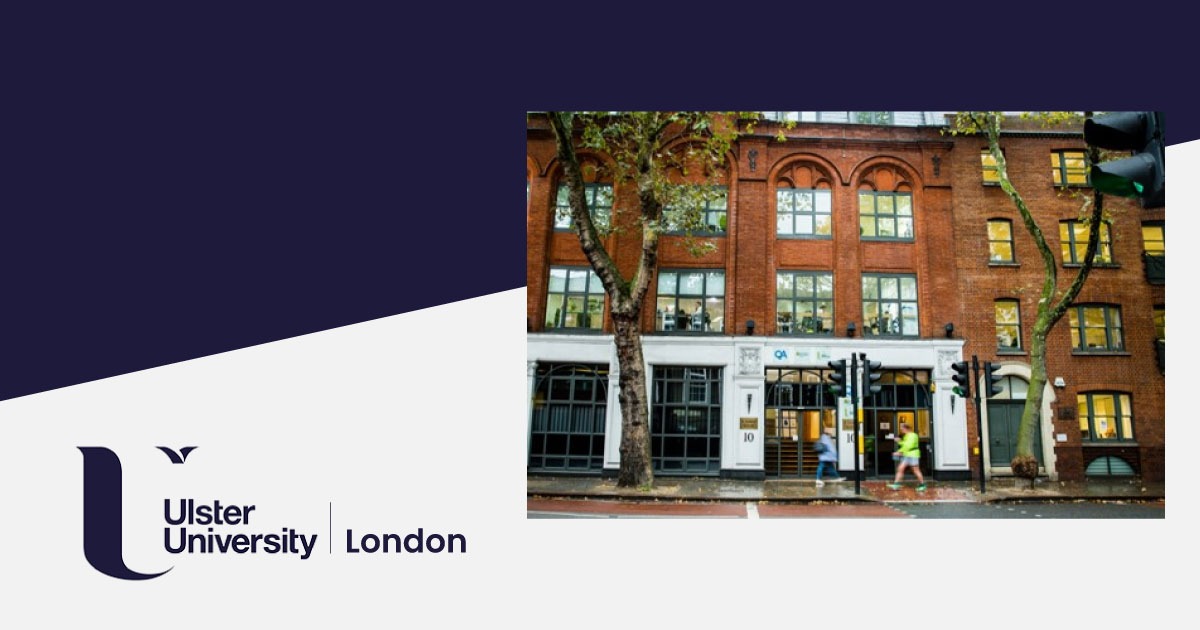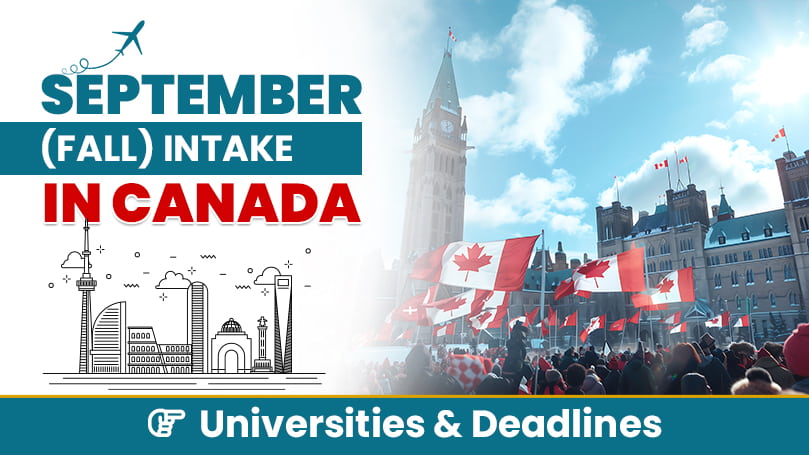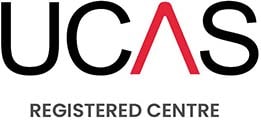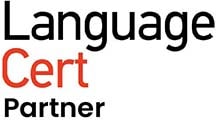Study in Canada: Universities, Courses, Scholarships & Visa
Do you want to study in Canada but are confused about the process and requirements? The student visa application fee in Canada is $150. According to Statistics Canada, 2022, the average tuition fee for undergraduate students in Canada is $36,123, and for graduate students, it is $21,111.
In recent years, Canada has emerged as one of the top destinations for international students seeking a world-class education.
In this blog, we will discuss the entry requirements, costs, and other information that you’ll need to study abroad in Canada as an international student. Before that, let’s explore the reasons why you should choose Canada for higher education.
Why Study in Canada?
Deciding where to pursue higher education is a crucial step in shaping your future. Canada, with its welcoming atmosphere, world-class education system, and diverse opportunities, has emerged as a top choice for international students. Here are some benefits of studying in Canada for international students.
Global Academic Reputation
Canada is home to some of the world’s top-ranked universities, known for their academic excellence and research contributions. Degrees earned from Canadian institutions are globally recognized, opening doors to a wide range of career opportunities. If you study in Canada, your degrees will be recognized internationally.
Diverse and Inclusive Community
Canada takes pride in its multicultural society, providing a welcoming and inclusive environment for students from various cultural backgrounds. Exposure to diverse perspectives enhances the overall learning experience and prepares students for a globalized world.
Work Opportunities
If you study in Canada, you’ll get numerous work opportunities for international students, including part-time jobs during studies and full-time employment during scheduled breaks. Post-graduation work permits in Canada enable students to gain valuable Canadian work experience after completing their studies.
Pathways to Permanent Residence
Canada provides favorable immigration policies for international students, with pathways to permanent residency for those seeking to establish a long-term presence. If you study in Canada, you can easily apply for permanent residency there.
Enquiry Now!
Popular Intakes in Canada
There are three popular intakes in Canada for international students.
September is the main intake, also known as the fall intake in Canada. January is the month of winter, also known as the Winter intake in Canada. May is the less popular intake, known as the Summer intake in Canada for international students. However, you may need clarification about which intake is the best for Canada. Among the three intakes, September is the best intake in Canada for international students.
Best Courses to Study in Canada for International Students
Many students ask us what they can choose to study in Canada. However, it completely depends on your future goal. Here are some of the best courses in Canada for international students.
- Engineering
- Computer Science
- Journalism
- Medicine
- Business Finance
- Business Management
- Nursing
- Financial Accounting
- Human Resources
- MBA, etc.
Canadian University List for International Students
Are you looking for the best universities in Canada for international students? Many popular universities in Canada are also ranked globally. Here is a list of Canadian universities for international students.
- University of Waterloo
- Trinity Western University
- University of Ottawa
- Western University
- Queen’s University
- University of Guelph
- Memorial University of Newfoundland (MUN)
- Concordia University of Edmonton
- University of Regina
- University of New Brunswick
- Brock University
- Wilfrid Laurier University
- Lakehead University
- University of Lethbridge
- Laurentian University
- Acadia University
- Nipissing University
- Brandon University, etc.
Best Cities to Study in Canada
International students always look for the best place to live and study in Canada. Here are some of the best cities in Canada for international students, which are also the most affordable.
- Winnipeg
- Edmonton
- Moncton
- Saskatoon
- Regina
- Calgary
- Montreal
- Quebec City
- Windsor
- Ottawa
- Vancouver
- Saint John
Scholarships in Canada for International Students
International students always ask, “How can I get a scholarship to study in Canada?” Canadian universities and the government offer numerous scholarships for international students. Here are some of the best scholarships to study in Canada.
Scholarships in Canada for Undergraduate Students
Are you looking for scholarships in Canada for a bachelor’s degree? Here are some undergraduate scholarships in Canada for international students.
- Lester B. Pearson International Scholarship Program
- Vanier Canada Graduate Scholarship
- York University Scholarships
- UBC Undergraduate Scholarships, etc.
Scholarships in Canada for Postgraduate Students
Are you looking for the best scholarships in Canada for master’s? Here are some scholarships to study in Canada for a master’s.
- University of Waterloo Scholarships
- Université de Montréal Scholarships
- University of Saskatchewan Graduate Scholarship
- Canadian Francophonie Scholarship Program
- Humber International Entrance Scholarships, etc.
Cost of Studying in Canada
The cost of tuition depends on the type of degree and the school you choose. You will need between CAD 13,000 and CAD 40,000 each year to pay for it. Tuition fees for an undergraduate program in Canada range between $13,000 and $20,000 (approximately). And the tuition fees for a postgraduate program in Canada range between $17,000 and $25,000 (approximately). Some courses may cost more than that. The cost of an MBA degree in Canada ranges between $30,000 and $40,000 (approximately). Living expenses in Canada for international students can range between $18,000 and $20,000 (approximately) per year.
Requirements to Study in Canada for International Students
Different universities in Canada require different entry criteria for international students. However, for an undergraduate degree, you must have completed your 12th standard, and for a postgraduate degree, you must have completed your bachelor degree with standard grades.
English Language Requirements for International Students in Canada
To get a study visa for Canada, you need at least a 5.5 score in each of the four IELTS sections and an overall score of 6.0 or higher for undergraduate and diploma programs.
Documents Requirements for Canadian Student Visa
To apply for a student visa in Canada, you must have the following documents:
- proof of acceptance
- provincial attestation letter or territorial attestation letter
- proof of identity
- proof of financial support
You may also need
- a letter of explanation
- a medical exam
- a custodian declaration (minors only)
Bank Balance Requirements for a Canada Student Visa
The minimum bank balance requirements to study in Canada for an international student is CAN$20,635 per year. So, if your tuition is CAD 18,000, you need at least CAD 38,635 in your bank account (CAD 18,000 for tuition and CAD 20,635 for living expenses).
How to Apply for a Student Visa in Canada?
If you’re applying for a study permit, you need to apply online, whether you’re outside or inside Canada.
You can only apply on paper if you
- Have a disability that makes online applications difficult.
- Have an identity or travel document for non-national residents, refugees, or stateless persons.
How to Apply for a Student Visa in Canada?
If you are applying for a student visa from outside Canada, it will take a minimum of 4 weeks to process your visa application. The processing time for a student visa can indeed be longer due to several factors.
University Application Deadline for International Students in Canada
There are three intakes in Canada. Different universities have different dates for application deadlines in Canada. However, the September intake deadline in Canada is March–July. The January intake deadline in Canada is September–December. The May intake deadline in Canada is February–March.
Can You Get Jobs in Canada While Studying?
Yes, according to the Canadian government, an international student can work 20 hours per week. And according to the latest update, Federal Minimum wage in Canada is $17.30 per hour.
Can You Study in Canada After 12th?
Studying in Canada after finishing 12th grade can be a life-changing choice for students looking for a good education and a bright future. With its well-known universities, modern teaching methods, and diverse culture, Canada has become a top destination for international students.
Final Words
Choosing to study in Canada is a life-changing decision that goes beyond the pursuit of academic excellence. With its high-quality education system, welcoming environment, and diverse opportunities, Canada provides a unique experience that shapes not only your educational journey but also your personal and professional growth.
As you embark on this exciting adventure, the vast landscapes, warm communities, and globally recognized institutions await you in the Great White North. So, if you want to study in Canada, you can always contact AIMS Education for better guidance.
Check Your Eligibility!
Upcoming intakes
FAQ
Ans: No, if you are applying from a non-English-speaking county, you must submit your English language proficiency certificate.
Ans: The cost of tuition depends on the type of degree and the school you choose. You will need between CAD 13,000 and CAD 40,000 each year to pay for it.
Ans: To apply for a study permit (student visa) in Canada, you usually need an acceptance letter from a Designated Learning Institution (DLI), proof that you have enough money to cover tuition and living expenses, and a clean criminal record.
Ans: Tuition fees for an undergraduate program in Canada range between $13,000 to $20,000 (approx). And the tuition fees for a postgraduate program in Canada range between $17,000 and $25,000 (approx).
Ans: The cheapest universities in Canada are Simon Fraser University, the University of Guelph, Concordia University, the University of Calgary, and the University of Saskatchewan. These schools offer a variety of diploma and degree programs with affordable tuition fees ranging from 12,000 CAD to 30,000 CAD per year.
Ans: Yes, according to the Canadian government, an international student can work 20 hours per week.
Ans: Yes, you can stay in Canada as a temporary resident while we decide on your new permit application. Just make sure you applied for the new permit before your original one expired.
Ans: McGill University, University of British Columbia, University of Ottawa, etc. are the best universities to study law in Canada.



































